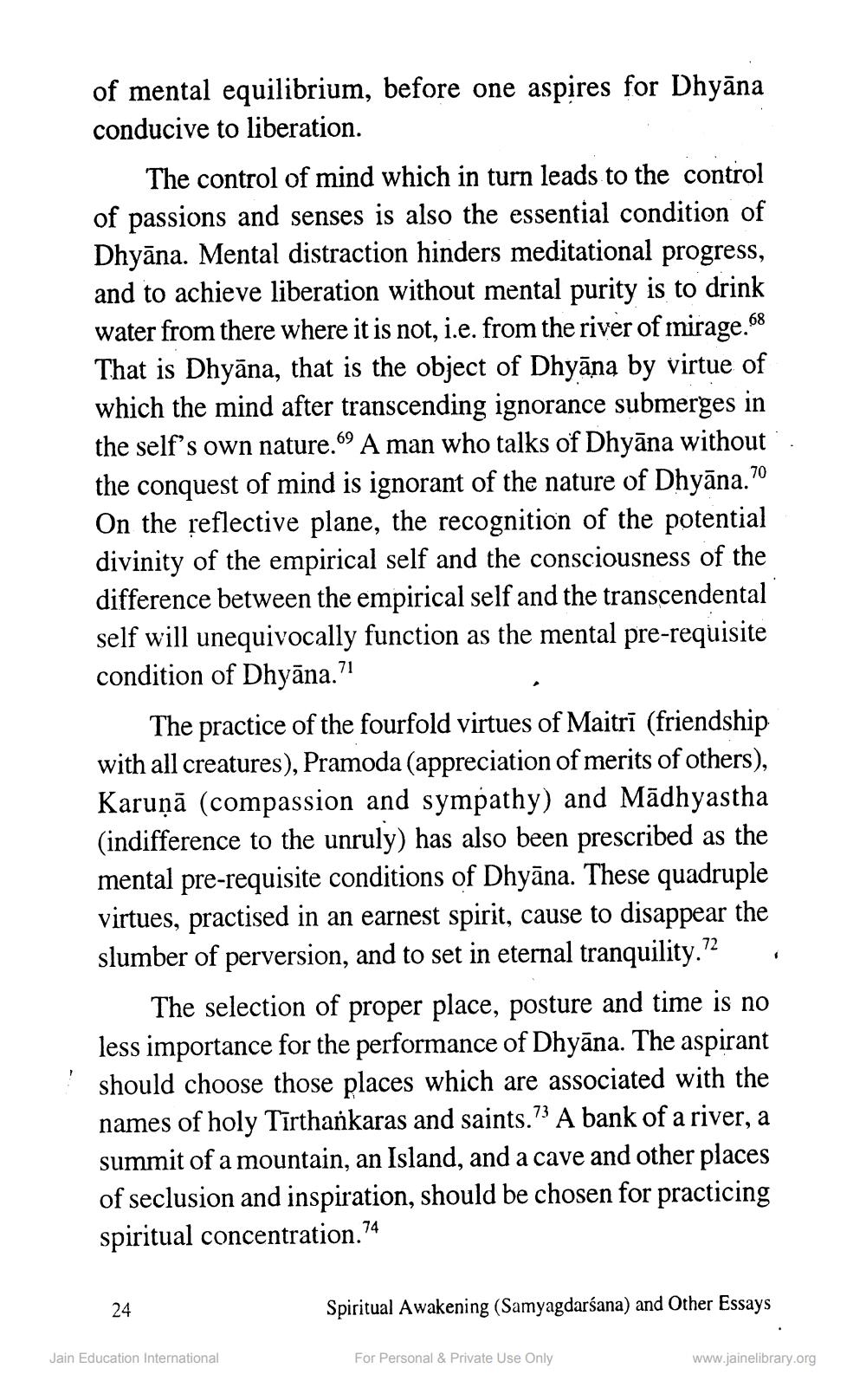________________
of mental equilibrium, before one aspires for Dhyana conducive to liberation.
The control of mind which in turn leads to the control of passions and senses is also the essential condition of Dhyana. Mental distraction hinders meditational progress, and to achieve liberation without mental purity is to drink water from there where it is not, i.e. from the river of mirage.68 That is Dhyana, that is the object of Dhyana by virtue of which the mind after transcending ignorance submerges in the self's own nature.69 A man who talks of Dhyana without the conquest of mind is ignorant of the nature of Dhyāna.70 On the reflective plane, the recognition of the potential divinity of the empirical self and the consciousness of the difference between the empirical self and the transcendental self will unequivocally function as the mental pre-requisite condition of Dhyana.71
The practice of the fourfold virtues of Maitrī (friendship with all creatures), Pramoda (appreciation of merits of others), Karunā (compassion and sympathy) and Madhyastha (indifference to the unruly) has also been prescribed as the mental pre-requisite conditions of Dhyana. These quadruple virtues, practised in an earnest spirit, cause to disappear the slumber of perversion, and to set in eternal tranquility."
71
The selection of proper place, posture and time is no less importance for the performance of Dhyāna. The aspirant should choose those places which are associated with the names of holy Tirthankaras and saints.73 A bank of a river, a summit of a mountain, an Island, and a cave and other places of seclusion and inspiration, should be chosen for practicing spiritual concentration.74
24
Jain Education International
Spiritual Awakening (Samyagdarśana) and Other Essays
For Personal & Private Use Only
www.jainelibrary.org




